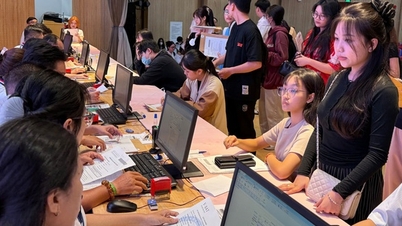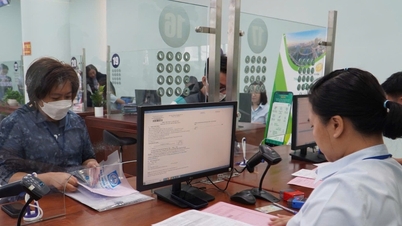 |
| “Working remotely” has become a “war” between employees and employers. (Source: freepik) |
The situation changed after the pandemic
Remote work has become a contentious issue for employers and employees. CEOs like Jamie Dimon of JPMorgan Chase are intent on making the concept of remote work a post-pandemic relic. Employees at America's largest banks and other Wall Street giants are finding themselves returning to pre-pandemic, five-day workweeks.
Big tech companies are also imposing strict rules. Meta and Lyft want employees back and require them to work in the office at least three days a week. With plans to tighten attendance and performance reviews, tech workers know the days of working from home are over.
New data from a global survey by WFH Research, a collaboration between Stanford University and Germany's Ifo Institute, concludes that company leaders worry that full-time remote work will reduce productivity.
A study of data entry workers in India found that those who worked from home were 18% less productive than their office-based counterparts. Another study found that employees at a large Asian tech company were 19% less productive when working from home than when working in the office.
Workers “struggle” to work remotely
But pressure from above hasn’t dampened employees’ desire to work remotely. According to WFH Research, they want to enjoy the convenience of working from home more days. On average, workers around the world want to be home two days a week, one more than they currently are.
In English-speaking countries, where telecommuting is most prevalent, demand is even higher. The trend is spreading to regions where telecommuting is less common. Workers in Japan and South Korea, two countries where most employees commute to the office, want to be home for a quarter of the week. Europeans want a third, and Latin Americans half.
 |
| Even though the pandemic is over, the need to work remotely is still increasing. (Source: Getty) |
The rise in demand for remote work is no surprise. Not having to deal with the inconvenience of commuting to work by public transport and traffic congestion helps employees save time, thereby balancing work and life.
According to a research paper by Nicholas Bloom of Stanford University, who helps direct WFH Research, the average worker can save 72 minutes a day by working remotely, which is equivalent to two weeks a year. Based on a Gallup survey last year, workers globally, on average, value all these benefits as an 8% pay increase, and some would take a pay cut to retain those perks.
Until recently, as companies scrambled to attract employees in the post-pandemic hiring wave, workers’ needs and employers’ plans were largely aligned. But that “congruity” is fading.
At the same time, the pandemic has also cemented remote work models. At present, a third of WFH workers surveyed choose to work entirely remotely or in a combination of remote and in-office work. This situation will not be easy to overcome.
It’s no coincidence that the rise of remote work coincides with the decline of some industries. Job cuts on Wall Street and Silicon Valley have returned power to corporations. But even in tech and finance, some workers are standing their ground. In May, Amazon said 300 workers staged a walkout to protest the e-commerce giant’s return-to-work policy (the organizers said the number of workers was closer to 2,000).
About to decide the winner ?
Companies are quietly adapting. British bank HSBC is planning to move from its 45-story tower in Canary Wharf to smaller offices in central London. Professional services firms Deloitte and KPMG want to downsize their offices to prioritize remote working.
It seems that the gap between the two sides in the remote work war is gradually narrowing. The question here is, between leaders and employees, who will "surrender"?
Source






































![[Photo] Keep your warehouse safe in all situations](https://vphoto.vietnam.vn/thumb/1200x675/vietnam/resource/IMAGE/2025/10/1/3eb4eceafe68497989865e7faa4e4d0e)
![[Photo] President of the Cuban National Assembly visits President Ho Chi Minh's Mausoleum](https://vphoto.vietnam.vn/thumb/1200x675/vietnam/resource/IMAGE/2025/10/1/39f1142310fc4dae9e3de4fcc9ac2ed0)































































Comment (0)